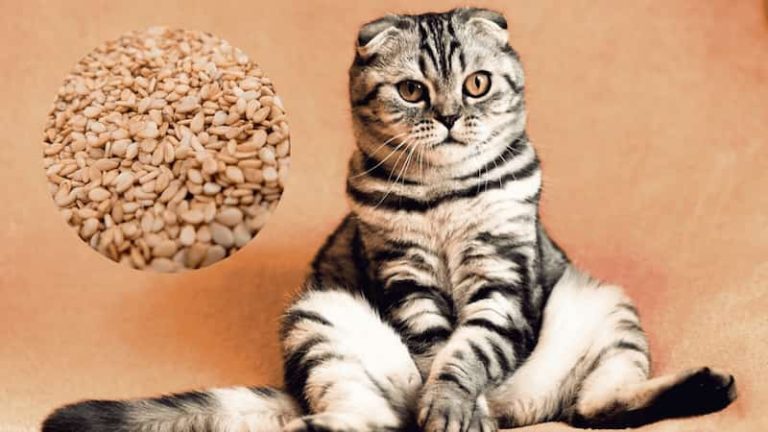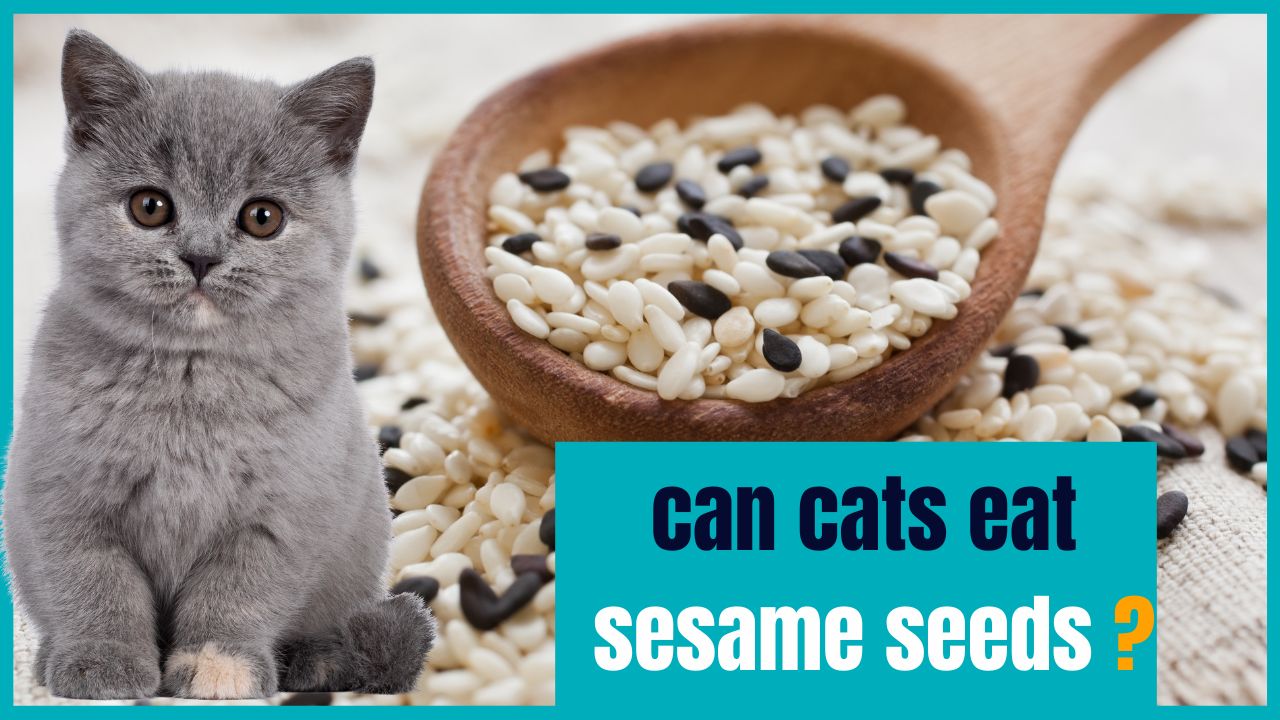Sesame seeds are a popular ingredient in many cuisines around the world. They are known for their nutty flavor and crunchy texture, and they are often used as a topping for various dishes. But what about cats? Can they enjoy sesame seeds too? In this article, we will explore whether it is safe for cats to consume sesame seeds and discuss any potential benefits or risks associated with it.

The Safety of Sesame Seeds for Cats
Cats have different dietary needs compared to humans, and their digestive systems are designed to process a specific type of food. While cats are obligate carnivores, meaning they primarily rely on meat for their nutritional needs, they can occasionally consume small amounts of plant-based foods. However, it is important to note that cats have specific dietary requirements, and their diet should mainly consist of high-quality animal protein.
When it comes to sesame seeds, they are not toxic to cats. In small quantities, sesame seeds are unlikely to cause any harm to your feline friend. However, it is crucial to remember that cats have sensitive digestive systems, and introducing new foods into their diet should be done with caution.
Potential Benefits of Sesame Seeds for Cats
Sesame seeds are a good source of various nutrients, including protein, fiber, and healthy fats. These nutrients can be beneficial for cats in small amounts. However, it is important to note that cats require specific nutrients that are primarily found in animal-based foods. Therefore, while sesame seeds can provide some nutritional value, they should not be considered a substitute for a balanced and complete cat diet.
Risks and Considerations
While sesame seeds are generally safe for cats, there are a few risks and considerations to keep in mind. Cats with certain health conditions, such as pancreatitis or gastrointestinal issues, may have difficulty digesting sesame seeds or other plant-based foods. Additionally, some cats may have allergies or sensitivities to certain foods, including sesame seeds. If you notice any adverse reactions or digestive issues after your cat consumes sesame seeds, it is best to consult with a veterinarian.
Furthermore, it is important to remember that moderation is key. Feeding your cat excessive amounts of sesame seeds can lead to digestive upset, including diarrhea or vomiting. It is always recommended to introduce new foods gradually and in small quantities to monitor your cat’s reaction.
Conclusion
In conclusion, sesame seeds are not toxic to cats and can be consumed in small amounts without causing harm. However, they should not be a significant part of a cat’s diet, as cats require specific nutrients that are primarily found in animal-based foods. If you are considering adding sesame seeds or any other new food to your cat’s diet, it is always best to consult with a veterinarian to ensure it is safe and appropriate for your furry friend.
FAQs
-
Can cats eat sesame oil?
While sesame oil is not toxic to cats, it is not recommended to feed it to them directly. Sesame oil is high in fat and can cause digestive upset or pancreatitis in cats if consumed in large quantities. It is best to stick to a balanced and appropriate cat diet. -
Are there any health benefits of sesame seeds for cats?
Sesame seeds can provide some nutritional value to cats, including protein, fiber, and healthy fats. However, it is important to remember that cats have specific dietary requirements that are primarily met through animal-based foods. -
Can cats be allergic to sesame seeds?
Yes, cats can develop allergies or sensitivities to various foods, including sesame seeds. If you notice any adverse reactions or digestive issues after your cat consumes sesame seeds, it is best to consult with a veterinarian for proper evaluation and guidance. -
How should I introduce sesame seeds to my cat’s diet?
If you want to introduce sesame seeds to your cat’s diet, it is recommended to do so gradually and in small quantities. Monitor your cat’s reaction and watch for any signs of digestive upset or allergies. If everything goes well, you can continue offering sesame seeds as an occasional treat. -
What are some other safe and healthy treats for cats?
There are several safe and healthy treats for cats, including small pieces of cooked chicken or turkey, freeze-dried meat treats, or commercially available cat treats specifically formulated for feline dietary needs. It is important to choose treats that are appropriate for cats and avoid any harmful ingredients.

